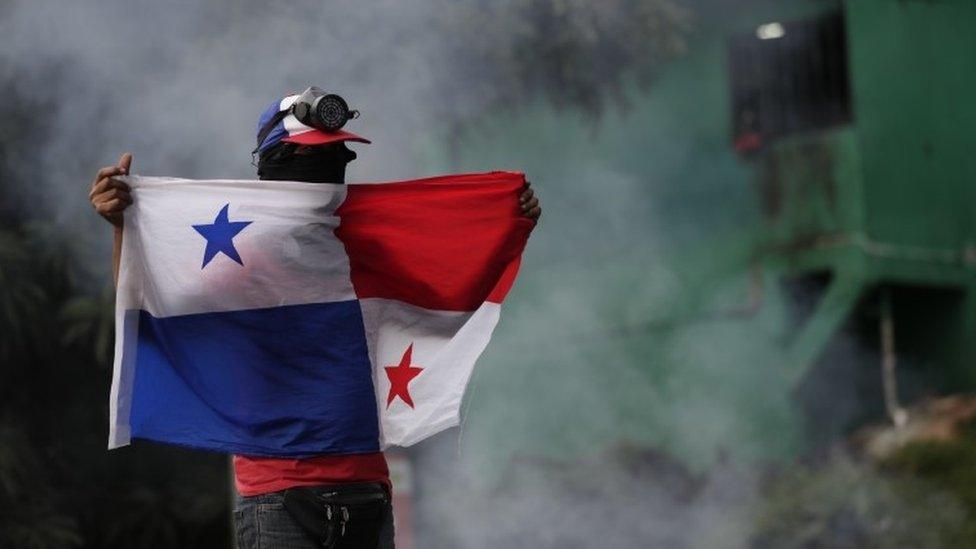Panama president reduces petrol prices following protests
- Published

The most recent wave of protests started at the beginning of July and has been spreading
Panama's President Laurentino Cortizo has announced a reduction in petrol prices.
The cost of fuel for private vehicles will be lowered to $3.95 (£3.34) per gallon from Friday, a 24% drop from the price at the end of June.
The announcement came after a eight consecutive days of protests.
Demonstrators say that they want the government to do more to curb inflation after the cost of food, medicine and electricity, as well as fuel, shot up.
In a televised statement, President Cortizo said the price rises were due to the "effects of the [Covid] pandemic and the consequences of the conflict in Ukraine".
He added that as well as reducing petrol prices for private vehicles, his cabinet would cap the price of 10 basic products, without specifying which ones.
The cost of fuel for public transport had already been capped at the start of June at $3.95 per gallon.
Panamanian media have described the measures as an attempt by Mr Cortizo to "retake control" amid the worst crisis since he came into office three years ago.
The protests coincided with a week-long absence of the president, who had travelled to the United States for medical tests.
In his TV statement he said that his condition, a blood disorder known as myelodysplastic syndrome, was "low risk" and could be controlled with medication.
Mr Cortizo said he had been across the events in Panama and understood "the dissatisfaction of various sectors with the situation".
Teachers were the first to take to the streets at the start of July but they have since been joined by construction workers, students, and members of indigenous groups.
Some of the protest leaders are expected to meet with government negotiators later on Tuesday in the city of Santiago de Veraguas.
But many protesters have already said that the petrol price freeze is not sufficient and that they will continue taking to the streets until broader action is taken.